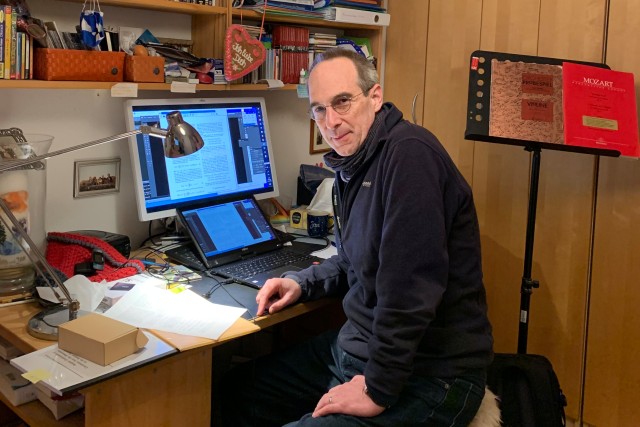Prof. Dr. Jan von Delft - LMU München
What is role within MCQST? Tell us a bit about your research focus?
I am a Pincipal Investigator (PI) contributing to research areas B:Quantum Simulation and F:Quantum Matter, and I am a co-coordinator (representing the LMU) of the new QST Master's Program that started this fall.
My group focuses on many-body systems with strong correlations. We study these either using tensor network methods (NRG, DMRG, PEPS) or field-theory methods such as the functional renormalization group. The power of these methods has increased to such an extent in recent years that their application to correlated material systems has become feasible. This provides a fascinating arena for using advanced theoretical tools for addressing challenging questions involving quantum matter, including real materials.
My interests overlap with those of colleagues employing tensor networks and field theory methods in their research, such as Mari-Carmen Banuls, Ignacio Cirac, Michael Knap, Lode Pollet, Frank Pollmann, Matthias Punk and Uli Schollwöck, or working on experimental systems involving strong correlations, such as Monika Aidelsburger, Immanuel Bloch and Alex Högele. The overlap is probably most strong with the group of Uli Schollwöck -- our first joint paper dates back to 2004, and our groups are located on the same corridor.
 © Jan von Delft
© Jan von Delft How does a typical workday look like for you?
My ideal workday would involve long stretches of uninterrupted time working on a paper or preparing a lecture, and/or an extended discussion with coworkers/colleagues on the status of their projects. A typical work day, though -- let's not elaborate...
What was the biggest challenge you faced this year?
My biggest challenge was reorganizing my freshman physics lecture in a manner compatible with online teaching. It is a real pity that students starting at university - a new phase of their life during which they would typically forge all manner of new contacts - cannot meet in person.
My biggest challenge was reorganizing my freshman physics lecture in a manner compatible with online teaching. It is a real pity that students starting at university -- a new phase of their life during which they would typically forge all manner of new contacts -- can not meet in person.
the initiative for setting up a QST Master's Program was generally met with enthusiasm and support from all sides.
You played a key role in launching the QST Master's program. How did that work out so quickly? What was the biggest hurdle?
Alex Holleitner, the TUM co-coordinator of the new QST Master's Program, shouldered the main load. He was extremely efficient in soliciting input from relevant colleagues, mapping out a timeline for meeting various administrative deadlines, getting approval from decision makers in the administration, and generally keeping the ball rolling. Marianne Köpf, initially our contact person in the TUM Hochschulreferat für Studium und Lehre, now study councilor for the QST-Master, was also really helpful for finalizing all sorts of details. All in all, I would say there were no truly major hurdles - the initiative for setting up a QST Master's Program was generally met with enthusiasm and support from all sides.